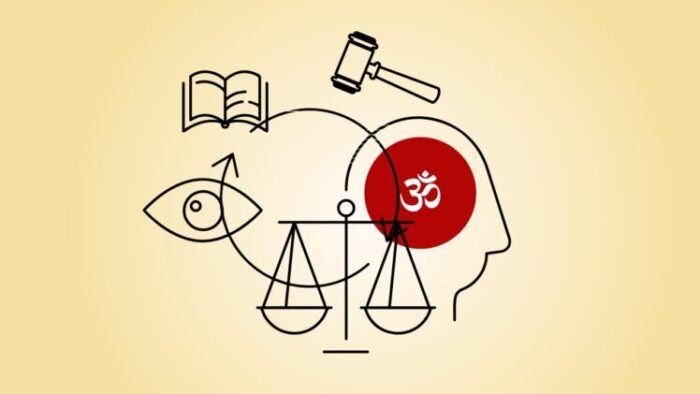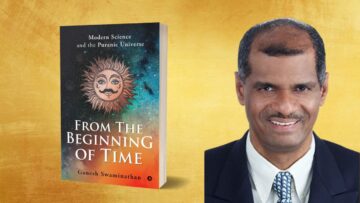Centre for Jurisprudence Studies CJS seeks to make Indic knowledge systems relevant in the field of contemporary law and practice. We seek to build a global ecosystem of institutions and intellectuals committed to Shastras, Law and Justice.
The Center was formed in 2022 as a collaboration between Justice Pamidighantam Kodandaramayya Foundation and INDICA. Our joint vision is that Indian knowledge systems have the potential of establishing a society where individuals and institutions are grounded in ‘virtue jurisprudence’ as a constitutional value. We organise talks, workshops, seminars and conferences to explore and reinforce this vision.
This year’s activities commenced with the well-known scholar Dr. Ruth Vanita’s talk on the Justice for Animals (and more) from Sanskrit Epics. Justice for Animals happens to be the title of a section in Chapter 10 (titled Citizens, Rulers, and Non-Violence) of her book The Dharma of Justice in Sanskrit Epics, published in 2022 by Oxford University Press.
A symposium – Hindu Ethics – Lessons from Dharma Sankatams in Vedic texts was organised in August 2023. Featuring 11 invited speakers (https://shorturl.at/AFIN3), it included sessions on diverse facets of Dharma Sankatams across multiple Sanskrit texts (an excerpt from the symposium’s concept note is included below):
In the vast landscape of human thought, few concepts have resonated as profoundly as the idea of Dharma. Emerging from the cultural and philosophical heritage of Bhāratavarṣa—a part of the world described in no less than sixty-three verses in the critical edition of the Mahābhārata and which encompasses all of today’s mainland India—Dharma encompasses a deep understanding of ethical and moral principles that guide human actions and decisions.
Dharma is of hoary antiquity: the string Dharma occurs at least 81 times in the Ṛgveda Saṃhitā, widely regarded as the oldest amongst what UNESCO describes as the “first literary documents in the history of humankind.” At least as early as the pre-Buddhist Bṛhadāraṇyaka Upaniṣad (BU), Dharma had already been explicitly elevated to a position where it was declared that “…there is nothing higher than Dharma.” {(Olivelle 2016:10); translation of तस्माद्धर्मात्परं नास्ति in BU 1.4.14}.
Over time and across texts, it has signified different things, including but not limited to duty, righteousness, law, and even the cosmic order that underpins the universe. By way of just one example: James Fitzgerald has presented in a table titled Overview of the word Dharma in Mbh (Fitzgerald 2004:674) what he calls three senses of Dharma in the Mahābhārata (1. “Normative action that is beneficial to its agent after death” 2. “Abstract quality of correctness, rightness, goodness or justice” 3. “Universally good character attributes, habits, dispositions”) and corresponding anchoring translations and main supplements—six of them—namely law, merit, right, just, virtue and piety. This complexity can be seen to mirror the multifaceted nature of human existence, where individuals are bound by responsibilities to self, society, and the cosmos. Unlike rigid ethical systems, Dharma is fluid and adaptive, acknowledging the dynamic interplay between individual aspirations and societal norms. A defining aspect of Dharma is its universality. Resonating beyond cultures and epochs, Dharma provides a transcendent framework for ethical considerations. Echoes of Dharma can be discerned in the Stoic philosophy of ancient Greece, the Confucian teachings of China, and the indigenous wisdom of diverse cultures. This universality speaks to the profound understanding of human nature within Dharma, recognizing our capacity for both self-interest and compassion. The pursuit of Dharma is also often inherently tied to a pursuit of justice. The Bhagavadgītā, a cornerstone of Hindu philosophy and a prominent milestone in philosophical thought across time, presents Arjuna with a धर्मसंकटम् (loosely, an ethical dilemma) on the battlefield – a conflict between his duty as a warrior to go to war for upholding Dharma (here, justice) and his affection and respect for some of his familial elders and Guru-s. Arjuna’s turmoil mirrors our contemporary conflicts, whether in professional, familial, or political realms. The lesson transcends mere dilemmas; it urges us to rise above biases and pressures, championing what is right and just.
The contemporary world, shaped by technological advancement and cultural evolution, presents numerous moral and ethical quandaries. In this landscape, a steadfast commitment to carefully discern what Dharma is, when faced with ethical dilemmas, and then to strive to uphold it, can provide the strength of purpose and a steady compass to navigate dilemmas. Studying Dharma-related dilemmas across time can also potentially result in the cultivation of an appreciation for the interconnectedness of life and an opportunity to refine one’s personal ethics.
Center of Jurisprudence Studies participated in INDICA’s festival Rama Raama Raamaa (Jan 10 – Jan 21, 2024 https://shorturl.at/ejALS) with two sessions on the theme Dharma in Rāmāyaṇa.
(Videos: https://www.youtube.com/watch?v=9Ln-EaPBI_I and https://www.youtube.com/watch?v=j6Afu9fP5fo )
(This report has been compiled by Director Center for Jurisprudence Studies Shri Megh Kalayanasundaram.






